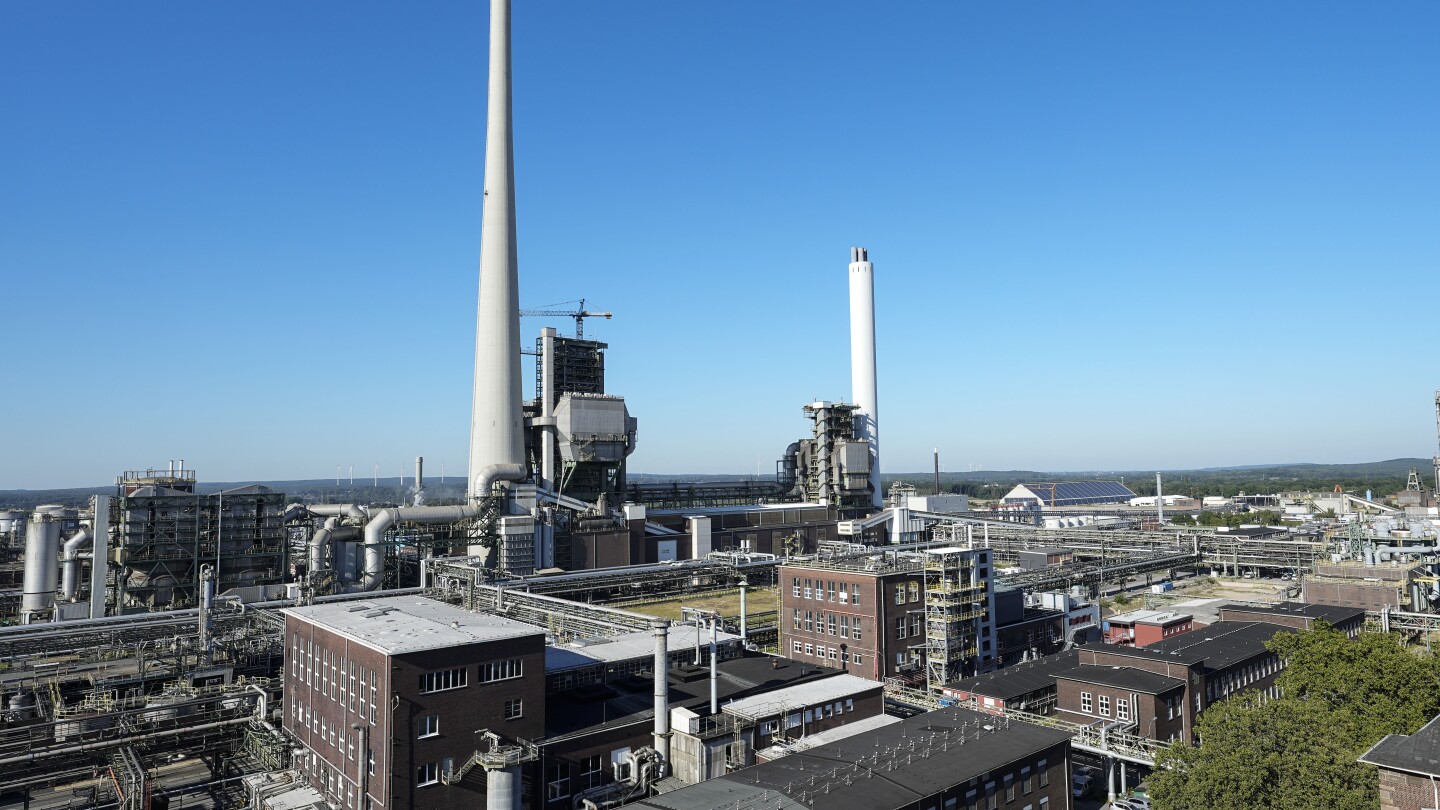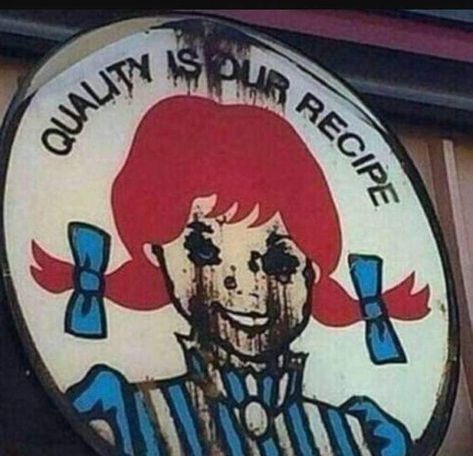For most of this century, Germany racked up one economic success after another, dominating global markets for high-end products like luxury cars and industrial machinery, selling so much to the rest of the world that half the economy ran on exports.
Jobs were plentiful, the government’s financial coffers grew as other European countries drowned in debt, and books were written about what other countries could learn from Germany.
No longer. Now, Germany is the world’s worst-performing major developed economy, with both the International Monetary Fund and European Union expecting it to shrink this year.
“Germany is hugely successful and has been for years, but now it’s success is slightly shrinking.”
Now please blame socialism and I got that sweet capitalist circle jerk bingo
germany was and is one of the better working socialistic democracies. calm your prosecution fetish
I don’t feel persecuted, I just want to point out how stupid it is to portrait even the slightest economic hiccup as a major failure, especially after facing two crises in short succession (with the climate crisis not even counted).
In fact, what you pointed out is among the reasons for that: All things considered, Germany is doing pretty OK. And I think economic growth is a much easier to solve problem than becoming a more sustainable economy/society (i.e. having social stability, fixing the education system, becoming less polluting and more independent from the global superpowers).
Lol
Lmao even
What kind of propaganda non-sense article is that? I live in Germany. We’re doing absolutely fine.
I’m fucking American and if you want the bottom spot you’ll have to fucking fight us for it!
We must live in two different Germanies than. I travel a lot and other countries are moving forward a lot faster than we are. Thanks to the CDU we weren’t doing much until recently. There are many topics that need attention, especially infrastructure, buerocracy, public health and retirement insurances, corruption aka “lobbyism”, and the list goes on. That’s all things you could fix one by one, but looking at how/what people vote, there won’t be any progress in the next decade imho.
Funny how this comment can fit most of western Europe
It might be overstating some things, but I’ve heard quite a few hardware startups fail the past years due to parts shortage, rising parts costs, energy costs, etc.
On the large industry scale the machine is ticking away just fine, but I’ve experienced first hand how those factors have decimated any reserves small players have over the past few years. And large companies don’t innovate nearly as much as small ones can - competitive advantages for the future are definitely lost here. While that may not be a problem today, that does mean Germany will be behind on innovation in 5 - 10 years.
And other countries didn’t have parts shortage etc?
They did, but they didn’t see as sharp of an energy price increase as far as I know. Our energy bill has increased so much that we had to not only deal with project (and thus payment) delays due to the shortages, but also with projects suddenly not bringing in money but costing us. This had a compounding effect on many small businesses.
You don’t do business in Germany then because I’ve been hearing otherwise of late.
Like most other countries, we’ve had to deal with COVID, inflation+countermeasures and climate troubles. And as an export nation, we’ve likely even been hit relatively badly by such global issues.
So, of course, not everything is entirely rosy. And of course, you’ll find people complaining.But this article makes it sound like we’ve entered a massive crisis. As if the Germany of today looks like a poor nation compared to the Germany five years ago. And that’s just not the case. We’re still filthy rich compared to most countries. Our current government is pushing the country forward again (after 16 years of stagnation before the pandemic). The fruition of these measures will obviously take some years to kick in, and we will now have to deal with climate change, whether we like it or not, but ultimately, it feels like our economy (+ the things that actually matter) are on an upward trend again.
Well it must be true because the author is an expert of the topic! That and Yeezys I guess (https://fortune.com/author/david-mchugh/)?
In terms of energy, the major fuckup was making gas cheap and electricity expensive (with taxes and renewable subsidies paid by private consumers).
If gas is 6 cents per kWh and electricity 35, no wonder people were installing gas heaters instead of heat pumps. Gas now being 9 and electricity 40 doesn’t make it much better.
A heat pump would have to give you 4.4 kWh of heat for 1 kW of electricity to make financial sense even if it didn’t cost more (Wikipedia: “Test results of the best systems are around 4.5. When measuring installed units over a whole season and accounting for the energy needed to pump water through the piping systems, seasonal COP’s for heating are around 3.5 or less.”)
No more cheap russian gas and oil, internal combustion engine expertise and all the associated pieces and submarkets being phased out in favour of simpler electric cars…it’s going to be a few hard years until they find a new export industry to perfect. I’d expect hydrogen-based aviation or pharma, maybe even semiconductors, they’ll figure it out.
At this late stage of Neoliberal Capitalism, what’s deemed “economic success” is a measly 2% GDP “growth” and for Germany that can just be from exploiting its access to cheap hydrocarbons from Russia, something which is now pretty much over.
Meanwhile, like everybody else, Germany is suffering the cummulative effects of 4 decades of neoliberalism and its “oh so special” way of managing the Economy (unconditional saving of Financial giants that overextended themselves, like Deutsche Bank, maximizing rewards for asset ownership and pumping up asset bubbles all over the place and so on) not just directly but also indirectly because you’re seeing empoverishment on a per-capita level in the countries to which German companies exported.
I think (all of this is opinion) that the general late stage Neoliberal Capitalism malaise is affecting most western countries and then Germany, thanks to that extra push of loosing the golden goose of cheap hydrocarbons (which was so great for the likes of BASF) is just this little bit worst than most, and after a decade which normalized a few percent of GDP increment as “growth” it doesn’t take much of a “push” to have what is mathematically a large percentual difference in “growth” rates compared to the rest (i.e. when “growth” is 2%, loosing a mere 1% results in half the “growth”).
Last but not least, as we’re living in Peak Bullshit Times when it comes to Politically Important Financial Figures, all of this ends up reported with no sense of proportion so tiny changes in a aggregate figure (not even per-capita) that doesn’t even map to most people’s experience are portrayed as enormously important (notice how in the “good times” we were told 2% was the country “growing”, when that value is statistically within the margin of error of the very processes used to produce those figures).
Also, this neoliberal course fucked up education somewhat fierce. We simply can’t deliver the quality anymore as more and more experienced engineers (the main driving force behind those exports) are retiring. And don’t get me started on the terrible internet/cell infrastructure!
Because we legitimized the financial sector as a net benefit to society, historically they were considered a net negative, but now all the smart kids want to go into investment banking.
Boom and bust galore.
The first dominion of the fall of the neoliberalism. Germany has multiple major flaw.
It didn’t invest in infrastructure like railways. Poor workers use public transportation what makes good conditions rare and therefore reduce the consumptions. The incomes are too low in the country. People can’t afford a basic live and can’t consume.
Budgetary rigor. Politics for years, we are looking at you Angela, wanted to spend the less amount of money they could. All of this ended with a lack of money in the system. This also is one factor to the rise of the far-right.
Tax cuts for companies and corporations created wealth for the capital. The capital grew what doesn’t help the economy.
dominion? Surely domino? I keep seeing people misspell words, by writing completely different words. Feels like we are getting surrounded by ChatGPT.
It’s very irrigating
I used what’s called an analogy.
A Dominion was any of several self-governing nations of the British Empire.
This is bullshit propaganda². Did some Lobbyist bought an Article over there? We dont need “breathing room for our energy-intensive industry” we need this lazy fucks to become energy efficient!
Capitalism has cycles. Nothing new.
Germany grew complacent during a “golden decade” of economic growth in 2010-2020 based on reforms under Chancellor Gerhard Schroeder in 2003-2005 that lowered labor costs and increased competitiveness, says Holger Schmieding, chief economist at Berenberg bank.
Gee, who was in power from 2005 until 2020?
Someone who thought that a country with a very low level of debt should not invest money in a time where you actually got money back for taking a credit
Their “debts are evil” stance for 15 years are extremely stupid - even more than the crippling of the roadblocks they put up for renewable
And now people are putting the blame on the current government that had to sweep out all the dust…
I’m not a huge fan of Merkel either, but it’s nuts to think that success in 2018 was because of Schröders policies and not hers (if you want to say that they’re due to the chancellor at all, which I’m not sure I do).
not only - but Germany having one of the biggest low-income-workforces in Europe because of Schröder was still helping her a lot.
I mean yeah, the previous administration will always have an effect, and she got a good opening hand. It just feels incredibly political to say that it’s from Schröder, without any other attribution, and the paper doesn’t touch on that at all.
Especially in the context of Germany being the envy of the world- a lot of that was due to her leadership during the Great Recession.
They fucked around with trying to be civil to russia and learned russia hasnt improved since WWII.
Everyone is nice to their oil guy.
Like the US with Saudi Arabia :p
Removed by mod
Huh news to me.
This is the best summary I could come up with:
Germany risks “deindustrialization” as high energy costs and government inaction on other chronic problems threaten to send new factories and high-paying jobs elsewhere, said Christian Kullmann, CEO of major German chemical company Evonik Industries AG.
From his 21st-floor office in the west German town of Essen, Kullmann points out the symbols of earlier success across the historic Ruhr Valley industrial region: smokestacks from metal plants, giant heaps of waste from now-shuttered coal mines, a massive BP oil refinery and Evonik’s sprawling chemical production facility.
After Russia cut off most of its gas to the European Union, spurring an energy crisis in the 27-nation bloc that had sourced 40% of the fuel from Moscow, the German government asked Evonik to keep its 1960s coal-fired power plant running a few months longer.
These outside shocks have exposed cracks in Germany’s foundation that were ignored during years of success, including lagging use of digital technology in government and business and a lengthy process to get badly needed renewable energy projects approved.
A 10 billion-euro ($10.68 billion) electrical line bringing wind power from the breezier north to industry in the south has faced costly delays from political resistance to unsightly above-ground towers.
Germany grew complacent during a “golden decade” of economic growth in 2010-2020 based on reforms under Chancellor Gerhard Schroeder in 2003-2005 that lowered labor costs and increased competitiveness, says Holger Schmieding, chief economist at Berenberg bank.
The original article contains 1,323 words, the summary contains 234 words. Saved 82%. I’m a bot and I’m open source!
Dunno…probably has something to do with their psychotic Russian neighbours lowering property values or something.
That’s easy, Merkel left
Merkel’s policies are part of the reason Germany is slowing down… Particularly her energy policy has been very poor.
Probably because of greentards (shutdown all nuclear reactors, vehicle standards, too much reliance on putin’s empire, etc), and maybe the vw scams 😅
Oh yeah, the “greentards” in form of a goverment consisting of CDU/CSU and FDP in the year 2011.
Wenn man keine Ahnung hat, einfach mal Fresse halten.










